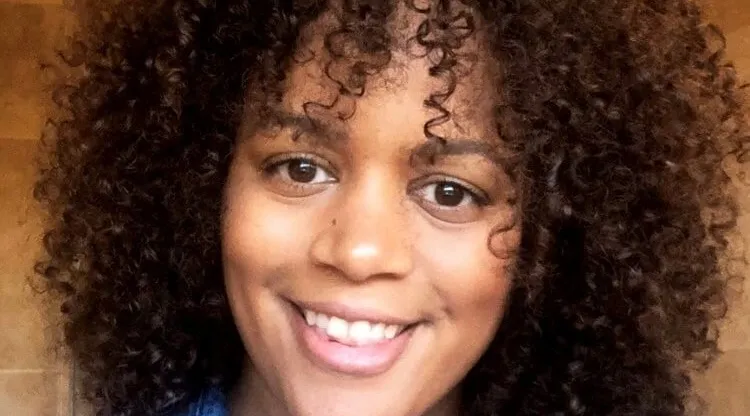How to make it in the workplace while being authentically yourself, according to a proud queer woman who did just that

Porsche Smith, HR Business Partner at Sony Music UK. (Sony)
Fresh from inspiring countless LGBT+ youth by speaking at a panel for PinkNews Futures, Porsche Smith, HR business partner at Sony Music UK, tells PinkNews the importance of being yourself in the workplace.
Smith went from working in New Look to being a crucial part of one of Britain’s biggest record companies, now acting as an executive sponsor at Sony Music UK’s LGBT+ network.
She told PinkNews how vital it is to listen to other members of the LGBT+ community even if you yourself are queer, and gave a few crucial tips for LGBT+ youth vying for a job in music.
PinkNews: Tell us your story on how you got to where you are?
Porsche Smith: I joined Sony Music earlier this year and was excited to join not only because of their brand but to understand how the music business works. It’s an exciting place to be!
Luckily for me, coming out has not been challenging at work. I have felt comfortable, so would naturally talk about having a girlfriend. I have had people assume the gender of my partner but I have never experienced a negative reaction either.
What values guide you as the LGBT+ network sponsor/a leader in the workplace, and what change do you want to enact in the lives of LGBT+ staff at Sony?
For people to really thrive in what they do, they need an environment where they can bring their whole self to work.
To do this, companies need to create inclusive spaces where people don’t feel they have to hide.
From my experience, bringing to work all the components that make you ‘you’ can make you more relatable and can result in opportunities to work on projects that you’re passionate about – getting the opportunity to share my experience wouldn’t be happening if I hadn’t brought my whole self to work.
At Sony Music, we want people to feel seen and recognised for who they are and what they do. As such, we constantly think about how to ensure our policies speak to everyone, and what initiatives we put in place to ensure people feel listened to, understood and protected.
What is unique about Sony’s LGBT+ network?
Our LGBT+ network, What If Freedom, launched earlier this year and is named in honour of Sony Music’s own George Michael.
What has been incredible is the amount of time and passion that has gone into the What If Freedom events this year, starting with LGBT+ History Month – the first event was a panel exploring visibility and erasure.

The What If Freedom Committee. (Sony)
What If Freedom quickly adapted to lockdown by organising virtual events on key topics, such as a panel for queer Black creatives, or an International Pronouns Day spotlight session.
The network later shared a company-wide email on the importance of using the correct pronouns and how everyone can help by including their own pronouns on email signatures.
Is there anything you have learned that surprised you in your time as an executive sponsor?
I think all experiences are uniquely different – being part of this community doesn’t make me an expert. I always learn from others and their experiences, so giving people a safe space to talk and being open about the limitations of my own knowledge was important.
During the first What If Freedom panel event, one panellist shared their experience of transitioning while at a single-sex school which really stuck with me because it’s a scenario I’d never contemplated before.
What are your priorities for the next year?
There is still a way to go to educate people on issues that don’t impact them. That is why a key priority is to build an even stronger understanding of the make-up of our teams and our employee experiences.
Additionally, we will look at how to support employees that come out as trans or transition at work.
Lastly, we will continue to drive initiatives that deliver equal employment opportunities and an inclusive workplace globally.
How have you supported your LGBT+ staff during the pandemic?
We have worked hard to deliver wellbeing initiatives throughout this pandemic as part of our We’re Here campaign, including virtual learning programs, such as on handling stress to avoid anxiety and burnout, and on ‘being human in a virtual world’.
We also offer ‘premium days’ for employees to take time out to focus on personal development and 24/7 access to counselling and financial and legal support.
What advice would you give to those thinking about pursuing a career in the music industry?
Music is a fantastic industry full of creative people from a range of backgrounds and experiences.
As such, when putting your CV together, use it as an opportunity to tell us about what you have achieved – sell yourself rather than just say what the job role was.
Do your research. We care a lot about our artists, our labels and our business and you should too. Know who some of the artists on our roster are and show an interest in what we do.
Finally, showcase your hustle. Sometimes obtaining paid experience is hard, so show that you’ve thought outside the box and you’ve initiated your own projects.
Who is your LGBT+ icon?
There are many people I admire for the work that they do as activists and the use of their platform and voice.
Pose is one of my favourite shows, so I would say Billy Porter and Indya Moore, but the whole cast really, for the way they represented experiences on screen.

